Welcome back to the Stairway to Wisdom!
As usual, I packed a ton of great book-stuff into one little newsletter. I really hope you like it, because I wrote it for you!
This week's book breakdown features The Creative Act, by Rick Rubin, one of my most looked-forward-to reads of 2023 and an absolute stunner of a book on creativity, the interplay between awareness and art, and how to do great work.
In this issue of the newsletter, we've also got a profile on the great Johann Wolfgang von Goethe, three books that will help you achieve competitive greatness, wisdom from an extremely valuable book about changing your self-perception, and more!
So let's get started!
Latest Release: The Creative Act
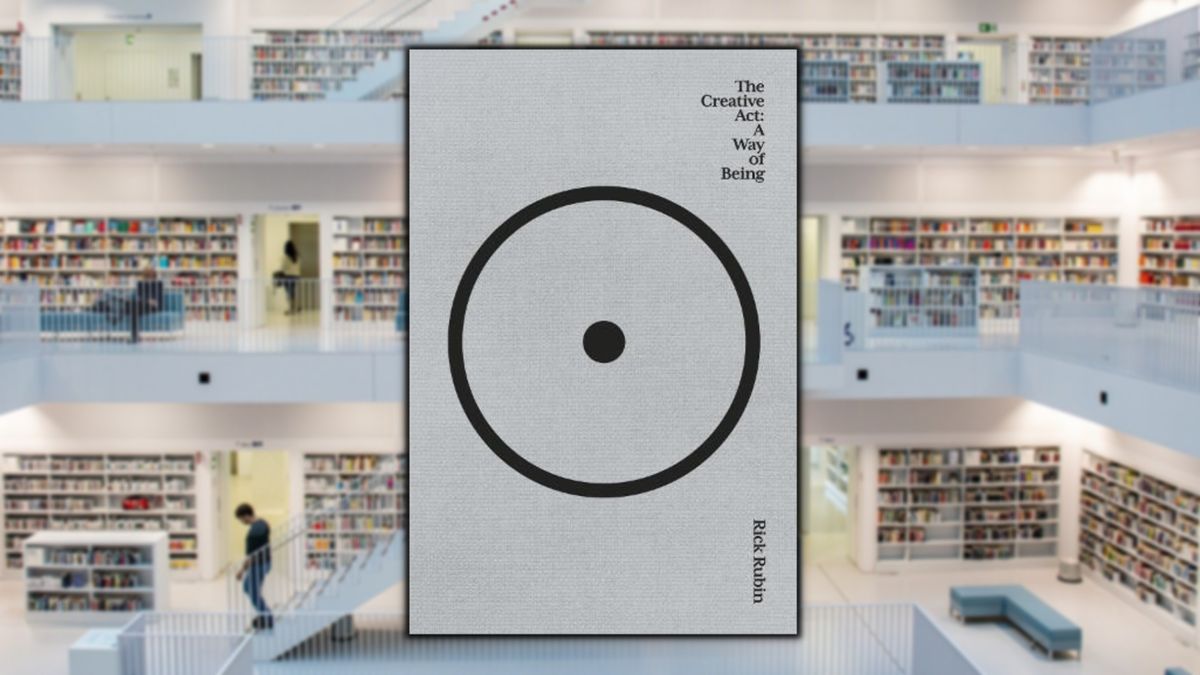
“To see what no human has seen before, to know what no human has known before, to create as no human has created before, it may be necessary to see as if through eyes that have never seen, know through a mind that has never thought, create with hands that have never been trained."
-Rick Rubin, The Creative Act
Legendary music producer Rick Rubin has probably guided more of your favorite songs into existence than you realize, no matter whether you listen to country, rock, rap, metal, or anything in between.
Ever since co-founding Def Jam Recordings from his college dormitory in the 1980s, he's produced albums for Slayer, Adele, Jay-Z, Neil Young, Johnnie Cash, and a huge number of other artists that have very little in common other than the fact that they all record songs.
As Rubin says in the book, "However you frame yourself as an artist, the frame is too small,” which idea he definitely exemplifies in his own life and creative work. Even The Creative Act itself expanded beyond its frame, because, as he said about his own writing process:
“I set out to write a book about what to do to make a great work of art. Instead, it revealed itself to be a book on how to be.”
The above statement is a big key to understanding the book, to Rubin's creative process in general, and to the nature of life and art itself, because he reveals that living and being are inseparable from the work you end up creating. There is no "work-life balance" for the true artist, and everyone is an artist if only they would learn to see.
Being an artist isn't so much about what kind of art you make, or some particular volume of output, but rather it's about your relationship to the world and how much of it you can pick up through your senses. And how much of what you see you're able to pass on to your audience to help us see it too.
The Creative Act contains 78 philosophical "musings" on the nature of art and the laws of creativity, although most of those "laws" are more or less made to be broken. Really, the only law that Rubin says is "less breakable" than the others is the need for patience.
Tactically, inside you'll find a wealth of insights about finding - and being receptive to - ideas, settling on sustainable rituals that will help you achieve longevity in your career, advice about setting limits, advice about exceeding limits, how to discover your own unique voice, and even what it means to express oneself creatively.
In the Key Ideas section, we'll be discussing what it might be like to pay attention as though you were landing a plane, how to expand the universe, how to anger the audience and incite strong reactions to your work, and more.
Rick Rubin will help us understand why we must become finishers, how we can take our work to its extreme conclusion, and why expressing ourselves is the best - and perhaps only - way to discover who we really are.
The fundamental idea behind much of his advice is that we are all artists, and each of us has something meaningful to contribute to the world, whether we're actively working to make it real or not. That's part of the magic that he often brought to the studio, and that's part of the magic he put into this book.
--> Read the rest at the Stairway to Wisdom!
Inside the Mind: Johann Wolfgang von Goethe

Inside the Mind is where we take you deeper into the life and thought of a major literary figure, someone who has had an extraordinary impact on our collective knowledge and wisdom.
Today I'm featuring Johann Wolfgang von Goethe (1749-1832), a German poet, playwright, novelist, scientist, statesman - alright, Goethe was a lot of things, okay? Including the author of one of my favorite plays of all time.
Faust is a brilliant play about an old scholar, Heinrich Faust, who’s become disillusioned by the finitude of human knowledge and makes a deal with the devil, Mephistopheles.
The bet they agree to, roughly speaking, is that if Mephisto can show Faust a moment that he will want to live eternally, then in that moment his soul shall be turned over to Mephisto forever.
I won't ruin the ending, but it's fair to say that Goethe believes that forgiveness and unconditional love are essential hallmarks of any God worth believing in. I actually read the whole play out loud the first time I read it because it's so spectacular.
Goethe also wrote the extremely well-known epistolary novel, The Sorrows of Young Werther, a book that Napoleon Bonaparte claimed to have read seven times.
In fact, Napoleon once met Goethe, upon which occasion he actually criticized part of the novel! Leave it to Napoleon to tell a genius like Goethe how to do his job.
Anyway, Goethe was at the center of an intellectual revolution in Europe during the 18th century, the reverberations of which are still being felt today in our culture, institutions, and ways of thinking about the individual mind.
He's certainly been a big influence on me personally, and if you're into 18th-century German philosophy, art, and culture, Goethe's your guy!
A Few Quotes from Johann Wolfgang von Goethe:
“One ought, every day at least, to hear a little song, read a good poem, see a fine picture, and, if it were possible, to speak a few reasonable words.”
“If you treat an individual as he is, he will remain how he is. But if you treat him as if he were what he ought to be and could be, he will become what he ought to be and could be.”
“You can easily judge the character of a man by how he treats those who can do nothing for him.”
Start with This Book: Faust, by Johann Wolfgang von Goethe
Another Good Place to Start: Goethe: Life as a Work of Art, by Rudiger Safranski
Wisdom in Action: Change Your Paradigm, Change Your Life
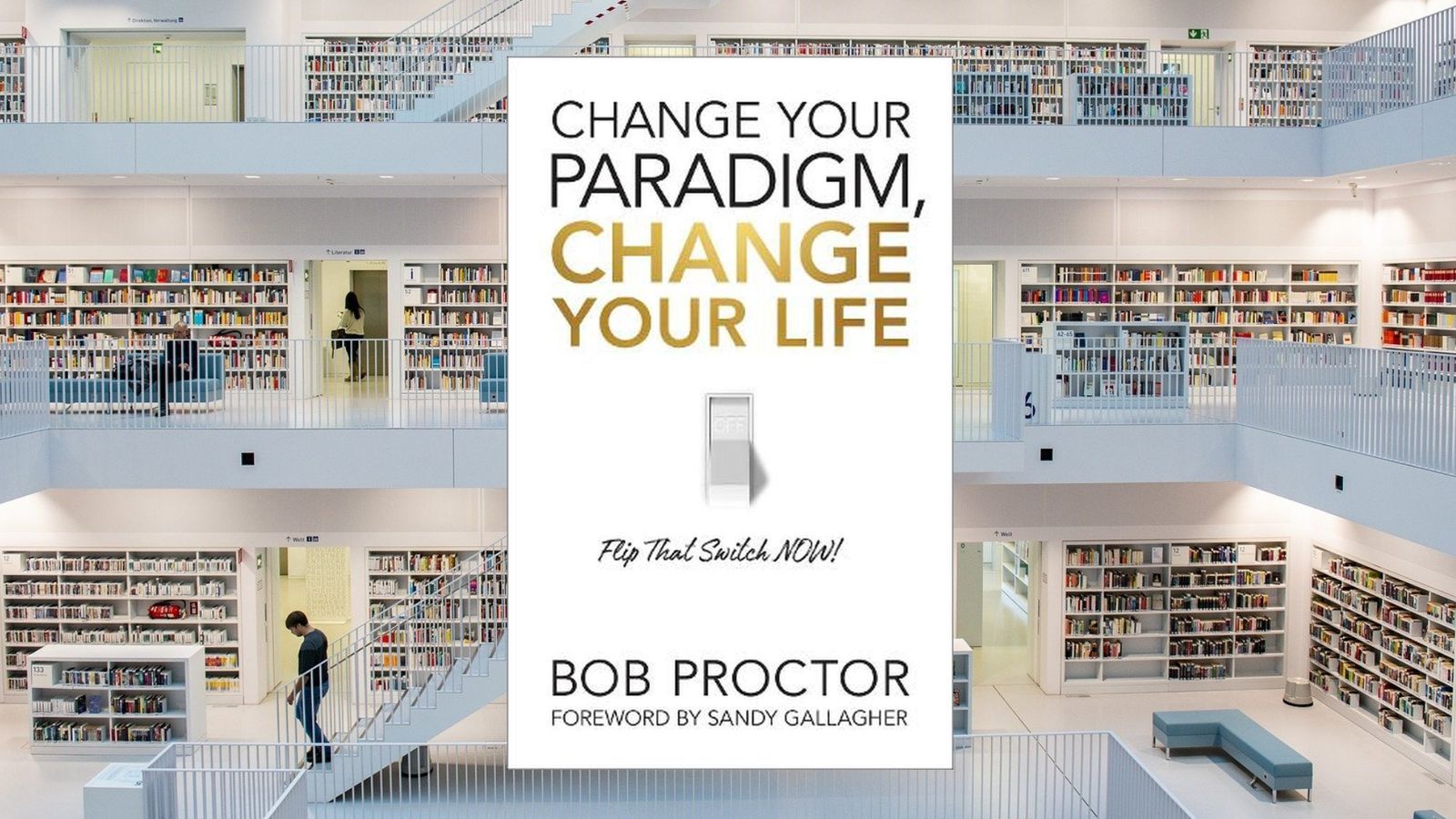
You'll notice that every book summary in The Stairway to Wisdom comes with Action Steps. That's because when you really want to bring about changes in your life, knowledge is not enough.
After learning and knowing, you must do.
We want every one of our readers to see and feel their lives changing for the better, immediately and over time.
So in this section, we've taken the first three Action Steps from Change Your Paradigm, Change Your Life, an extremely valuable book about identity change and personal growth, and put them right in front of you so that you can take action today:
#1: Make a Firm Decision
Everything starts with a firm decision. You may have heard this before, but the Latin root of the word, "decide," is decidere, which means literally to cut off, as in cut off any other possibility except this one. To burn the boats, so to speak, and to go all in.
We tend to resist change from the outside, but when we've decided to change, and we enlist the help of others for extreme accountability for our decision, then big things start to happen.
#2: Practice Creative Visualization
This is the most "out-there" thing I'll ever ask you to do, but I do believe it plays a part in bringing about lasting change in our lives.
We need to see the desired change, in clear, bright, vivid detail, and we need to enlist all our senses in order to constantly bring it to the top of our minds.
An important step here is to write out your vision in words and keep it in front of you literally all day long. Some people also print out photos of the kind of life they want to live, and although I don't do that personally, it doesn't strike me as a bad idea either.
#3: Act Like the Person You're Becoming
Our actions tell us who we are. Remember, your brain is always paying attention to what you're doing, and if you perform the actions and the habits of the person you want to become, then eventually, you become that person.
You become what you think about most of the time - what you hold constantly in awareness - and what we all need to do is gather evidence that we are the kind of person we want to become.
We remind ourselves over and over and over again through our words and actions until it's just overwhelmingly true that this is who we are. We act our way into a new mode of being.
Read the Full Breakdown: Change Your Paradigm, Change Your Life, by Bob Proctor
From the World of Reading: New Book Alert
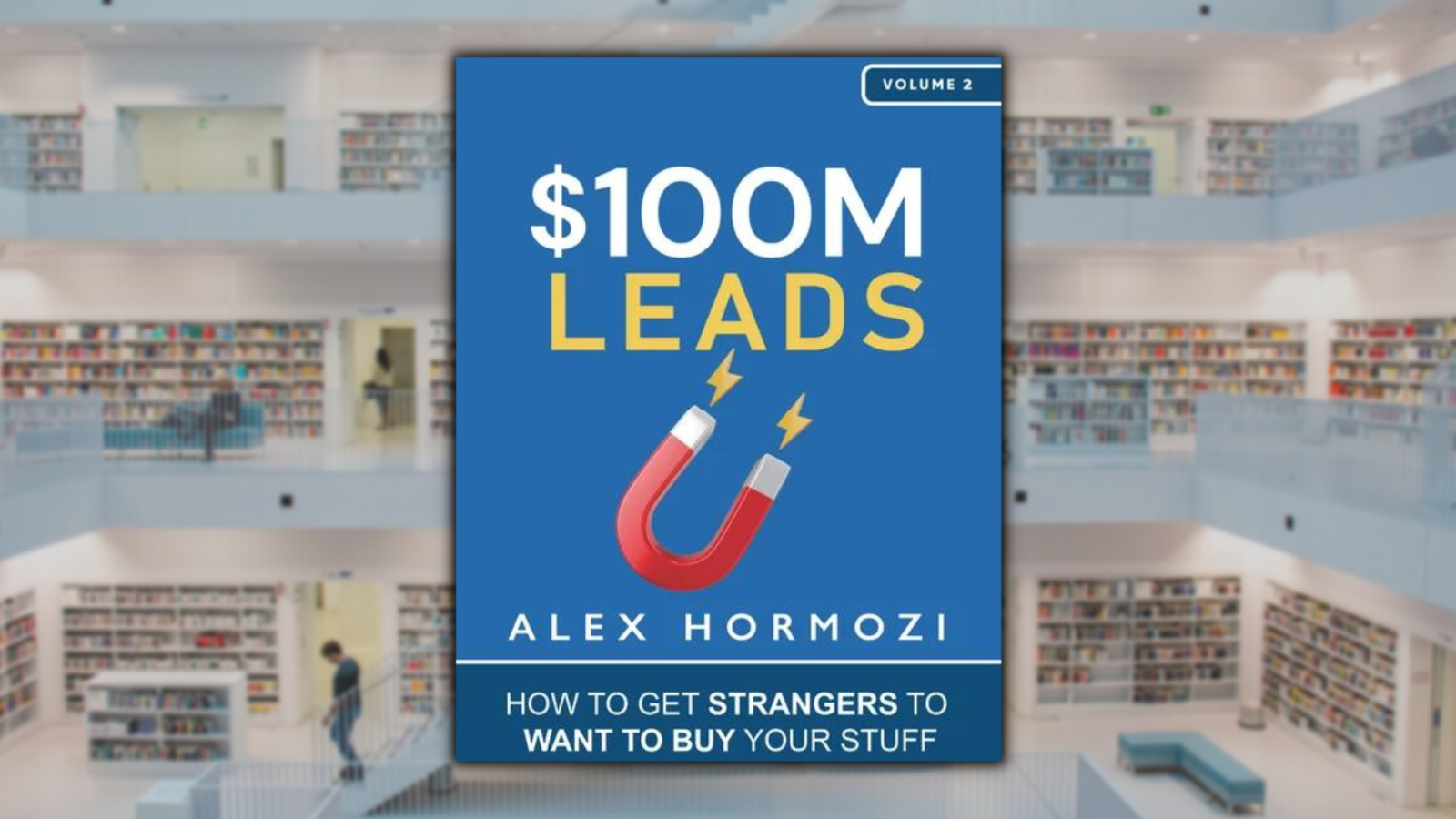
How crazy is this: Alex Hormozi grew his social media audience by 5,000,000 people in less than 24 months, and in his latest book, he teaches you exactly how to do it too.
Seriously, all the entrepreneurs who came of age listening to Alex Hormozi have no excuse to stay poor.
His first book, $100M Offers changed everything for me and my business, and when I attended Hormozi’s live book launch event (replay here), I just knew that this latest book was going to be something special too.
Alex’s company, Acquisition.com, does more than $100,000,000 in top-line revenue (and it’s probably more by now), and, as faithful followers will know, he has nothing to sell you (or at least he didn’t before the books came out, but even they’re just $10).
He makes his money building profitable companies, and he basically gives his knowledge away for free on YouTube.
What a future we are LIVING IN right now!
Anyway, I highly recommend reading both books, but here’s what Amazon has to say about $100M Leads:
"You can get 2x, 10x, or 100x more leads than you currently are without changing anything about what you sell…
This book contains the playbooks that took me from sleeping on my gym floor to owning a portfolio of companies that generate $200,000,000 per year in under a decade. Wanna know the biggest difference between those two time periods? How many leads I was getting.
The problem is - most business owners don’t know how to get leads.
I wrote this book to solve your LEADS problem.
Today, our companies generate 20,000+ new leads per day across sixteen different industries. And, they do it using the eight “never-go-hungry” playbooks inside. Once you see them, you can’t unsee them. They’re so powerful, they work without your permission.
Inside you will find…
…The easiest way to get another five customers tomorrow
…The hook-retain-reward system to transforms content into leads
…The 6-part ad framework that gets more people - especially strangers - to want what you sell
…The one question that immediately turns any stranger (no matter how cold) into a hot lead
…The 7 direct referral methods responsible for 30% of my sales
…The affiliate playbook that gets hundreds of other businesses to advertise your stuff for free
…The agency agreement that gets them to teach you their lead-getting secrets at no cost
…The how-to-get-people-off-the-streets-and-getting-you-leads in under 2 weeks framework
…and everything else that got our companies boatloads of leads…fast.
And the best part is…you can use these playbooks to get more leads within an hour of reading this book. You just have to know where to look…and the first place is inside.
If you want to get more leads for your business...then ADD TO CART, use its contents, and see for yourself."
Source: Alex Hormozi
Learn This Concept: Building a Boredom Moat

It's hard to compete with someone who's having more fun than you at something that's supposed to feel like work.
A boredom moat is essentially your competitive advantage when it comes to doing great work and being recognized for it.
If you can find something that you love but that most people find boring, you're going to be able to do it better, faster, for longer than anyone else, and eventually you're going to separate yourself from any and all competition.
Your moat will be so wide that, for someone to be able to compete with you, they'd have to love the work as much as you do.
For me, my boredom moat is reading!
I've carved out a nice little career for myself writing and speaking about something that many people would find boring. Or, at least they wouldn't find it as fascinating as I do!
I could literally talk about books all day and all night for decades, and that's why I'm not too worried about competition.
My boredom moat is just too wide. Any potential competitors would never be able to stick with it for as long as I would be able to, because I just love it more than they ever will.
The best boredom moat for you will be something that aligns perfectly with your personal, unique interests. Find something that you could talk about all day and all night for decades, and you'll wind up with a pretty solid competitive advantage!
Further Reading: Build a Boredom Moat
Three Books: How to Achieve Competitive Greatness

There is a book for every problem you could ever face. Whatever it is that you're dealing with, someone else has also gone through something similar, come out stronger on the other side, and written about it in a book.
With that in mind, here are three books that can show you how to dig deep, pull out your very best effort, and, in the process, achieve competitive greatness:
The Essential Wooden, by John Wooden and Steve Jamison:
"Competitive Greatness is having a real love for the hard battle knowing it offers the opportunity to be at your best when your best is required.
The great competitors I have played for and against, taught and admired all shared a joy in the struggle itself - the journey, the contest and competition. The tougher the battle the better.
A leader must convey this to those you lead: a tough fight can bring forth Competitive Greatness. The hard battle inspires and motivates a great competitor to dig deep inside.
That's why I relish the challenge a worthy competitor presents. You are tested. When properly prepared you will rise to your highest level and achieve Competitive Greatness."
This Book Breakdown contains 7 Key Ideas, 3 Action Steps, and 47 Book Notes. Read It Here.
Winning, by Tim Grover:
“Control your thoughts, and you control your emotions. Control your emotions, and you control your actions. Control your actions, and you control the outcome.”
This Book Breakdown contains 12 Key Ideas, 7 Action Steps, and 22 Book Notes. Read It Here.
Your Next Five Moves, by Patrick Bet-David:
“The irony is that each time you step up, you have to start at the bottom.”
This Book Breakdown contains 7 Key Ideas, 5 Action Steps, and 14 Book Notes. Read It Here.
Upgrade Your Reading:
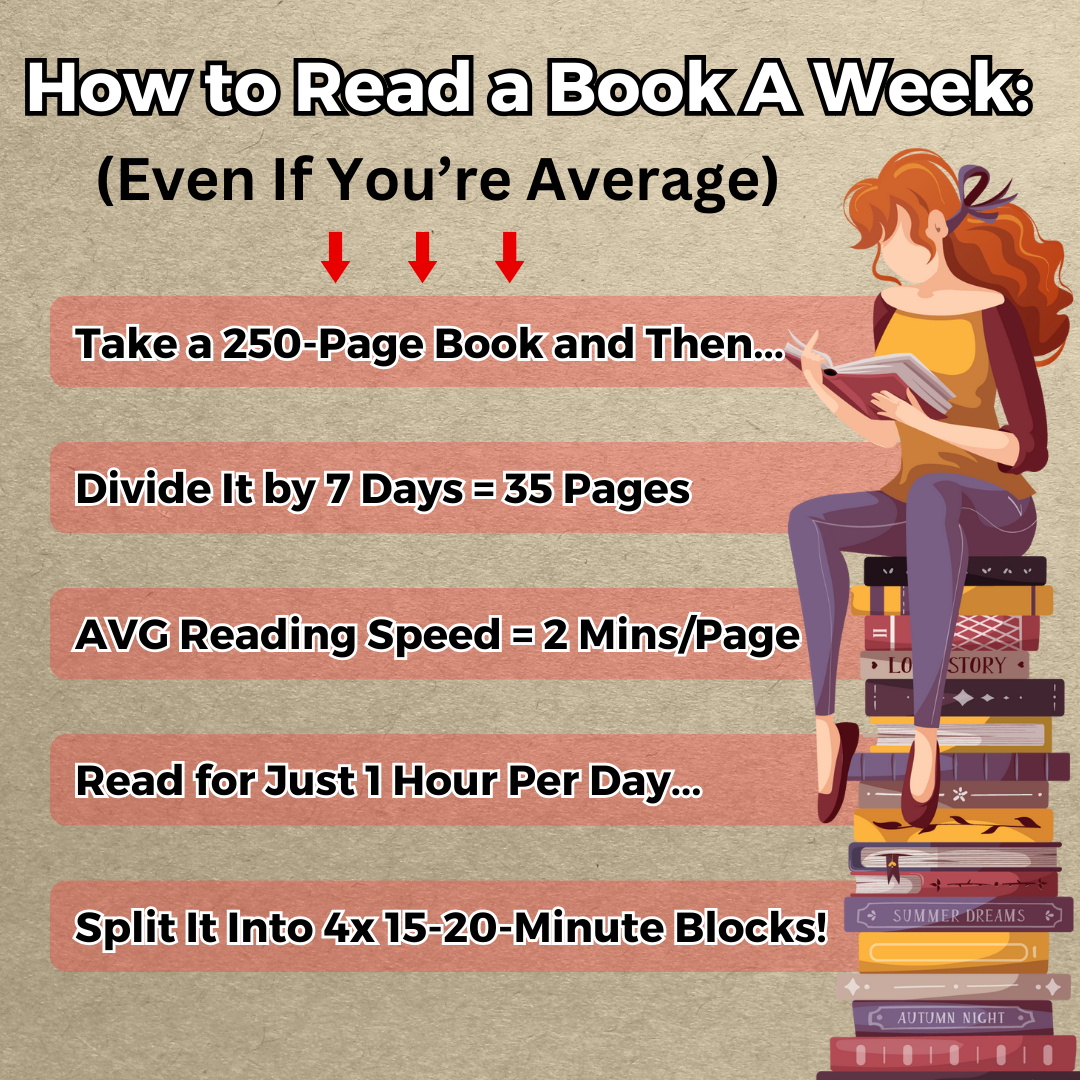
Reading 52 books a year is totally achievable, and you don't have to take some $1,000 "speed reading" course in order to learn how.
In fact, most of those people are actually just fakers.
The scientist Stanislas Dehaene, in his book, Reading in the Brain, says that physiologically, the hard limit of how fast human beings can read is about 1,000 words per minute.
And even that is insanely fast.
Myself, I might be a little faster than average, but even I "only" read something like 300 words per minute.
Most people will never be faster than 500 words per minute, and guess what?
That's perfectly okay! I still read 100+ books a year with my "average" reading speed.
The key is simply to SPEND MORE TIME READING!
Simple, yet effective!
And there are tons of ways you can fit little 15-minute blocks of reading into your day. I love ebooks for that reason. I can be standing in line somewhere and, 15 minutes later, I've read several pages or more in my book.
Probably one of my best tips though, and I've made whole videos about this on my YouTube channel, is that you should schedule what's most important to you FIRST...
...and then schedule everything else AROUND IT.
Further Reading: Matt Karamazov on Instagram
Study Notes: The Success System That Never Fails, by W. Clement Stone

Forget the lame title (the book came out in 1962), this guy left $275,000,000 to charity after he died, so it’s pretty safe to assume that you and I can probably learn a thing or two about a thing or two from him.
The Success System That Never Fails is something of an autobiography, and it actually contains most of what we know about Stone’s life. It begins with his early life, selling newspapers on the street and eventually having a “breakthrough” when he discovered that the real money was in selling to people inside restaurants.
At first, the owners and managers tried to shoo him away, but he slowly won them over with his politeness, persistence, and because of the fact that most of the restaurant patrons had no objections to this ambitious young man trying to make his way in the world! It’s a style he adopted all his life, and, hey, I mean $275 million dollars later, here we are!
Obviously, since it was written in 1962, he talks exactly the way you think he would, with this old-time-y, “Dale Carnegie-esque” earnestness. So the language is a little dated, but the sales and business knowledge is timeless!
Hunter S. Thompson would have hated the guy for how much he donated to Richard Nixon’s presidential campaign, but there’s no political stuff in here! It’s all honest, natural, wholesome, and effective sales advice that is very well worth learning.
Stone was clearly one of the greatest salesmen of the 20th century, with a decency and a genuine desire to help and be of service which is evident in everything he wrote. There’s plenty still to learn from this little book.
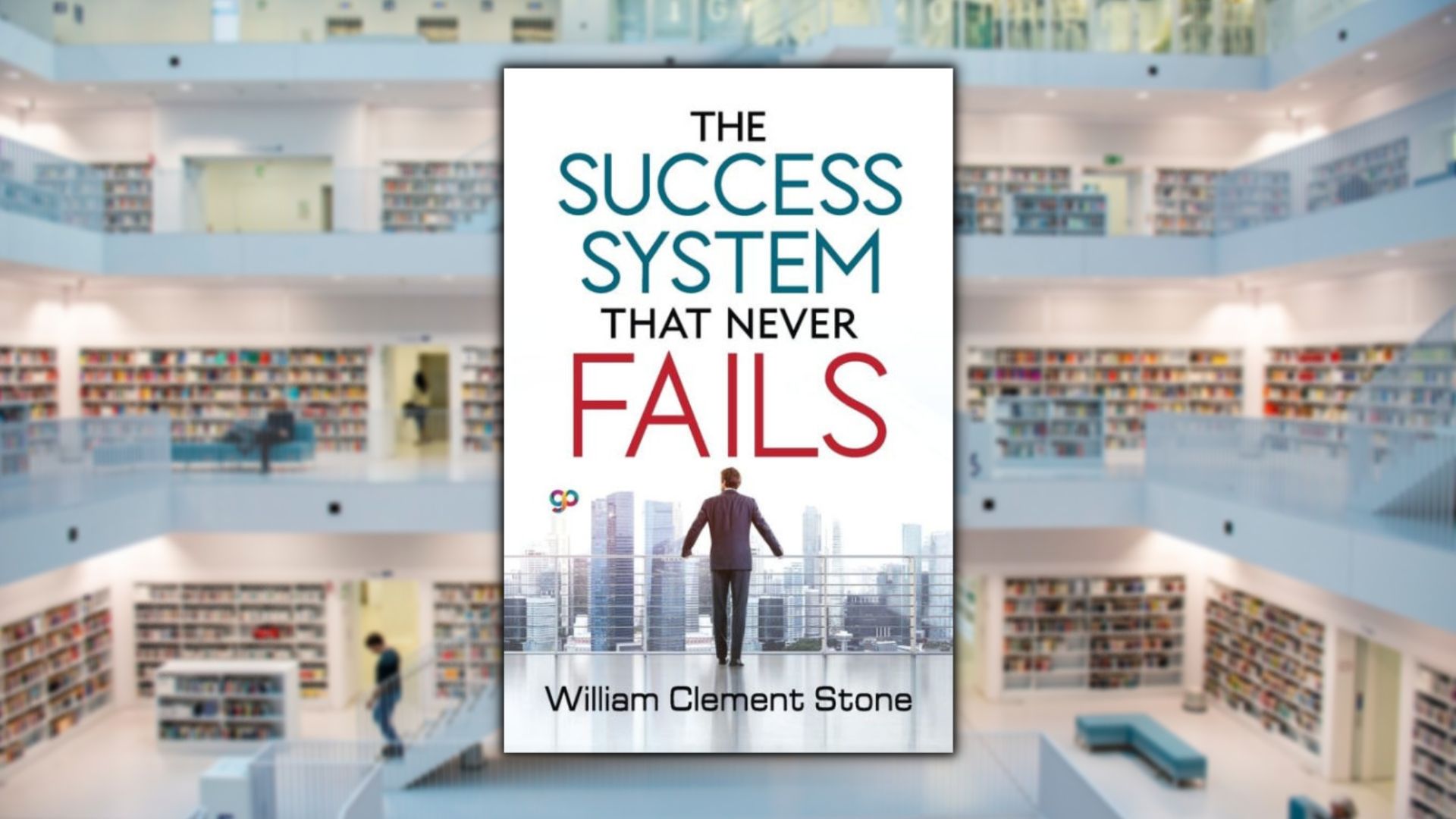
A Sample of My Book Notes from The Success System That Never Fails:
“When you go for something, don’t come back until you get it.”
“In the end, your environment will control you; therefore, make sure that you control your environment. Avoid situations, acquaintances, and associates who tend to hold you back.”
“I tried to make one hour do the work of many, just as I tried to make one dollar do the work of many.”
“I believe it is desirable for each of us early in life to decide what he would do if life ever seemed to be not worth living. I know I did. My decision: Should my life ever be worth nothing to me, it could at least be worth much to others.”
“Don’t take the first step in the wrong direction.”
“Remember: The essence of a living philosophy is that it must be alive. To be alive, it must be lived. To be lived, you must act! Actions, not mere words, determine the validity of a man’s living philosophy.”
Further Reading: Matt Karamazov's Notes from 1,150+ Books
What's Next?

That's it for this week! But I'll be back next week with more book breakdowns, inspiring thinkers, novel concepts, big ideas, reading tips, and more.
In the next issue, I will also be releasing the breakdown of Be Nobody, by Lama Marut, a book of Eastern philosophy centered around the destructive drive to be somebody in the world, and how it might instead be a saner, less stressful choice to be nobody.
After all, nobody's perfect, so why not be nobody?
Also, if you have any bookish friends that you think would love the Stairway to Wisdom, you can click the button below and share it with them. I mean, what are friends for?
We covered a lot today, and again, thank you very much for joining the Stairway to Wisdom. The whole team is behind you! We all want you to win!
Until next time...and happy reading!
Matt Karamazov

